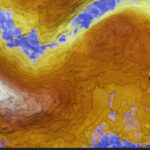
City of Sand
October 18, 2022 3:50 pm Leave a commentInstallation of an miniature city with features that enhance its resilience to climate change and disasters. Produced by the City Resilience Program with sand artists from Florianopolis.

Installation of an miniature city with features that enhance its resilience to climate change and disasters. Produced by the City Resilience Program with sand artists from Florianopolis.

Evening sessions with an actual fire! Enjoying casual presentations and drinks.

Engage in new ways to conceive and deliver risk communication. Performances + Session.

Join us in this risk-taking singing adventure! What’s at risk on stage? Prizes available.

Creative discussions and demos with our sponsors and partners.
Exhibitors: Google, NASA, Canada, Image Cat, TikTok, Anticipation Hub, Averted Disaster Photo Exhibition, GFDRR, City Resilience Program, Digital Earth Partnership, Brazilian National Secretary of Protection and Civil Defence.
Science Trust and Society (Part 2)
(Part one available here)
Summary:
| This interactive session will spark thinking on the central role of public trust in understanding risk and taking the right actions to reduce risks through a serious game.This panel will dig deeper into the critical role of trust in understanding and communicating risk, drawing on experience in emergencies, including the continuing COVID pandemic, as well as the long-running challenge of raising confidence in vaccines. Panellists will consider the roles of government, media and civil society in building trust and confidence, helping the public develop the critical tools they need to filter information and take better decisions in the face of risk.This interactive session will spark thinking on the central role of public trust in understanding risk and taking the right actions to reduce risks through a serious game. |
Speakers:
Heidi Larson, David Reid, Leesa Lin,
David Chan, Julian Tang, Tang Tong
UR Asia Closing Ceremony
Summary:
| Organisers, Olivia and Nathaniel wrap up UR Asia in style after a nice highlight video. |
Speakers:
Olivia Jensen
Nathaniel Tan Qian Jin
Closing Keynote
Summary:
| Dr Freeman will speak about her own journey as a risk communicator, driven by a mission to inform, not persuade. Communicating risk has been a vital activity in the last two years – in some cases a genuinely life or death activity. People have been bombarded by numbers – of infections, deaths and vaccinations – and have tried hard to understand them. Despite real efforts to improve these communications, by designing and testing different ways of visualising the data, giving people scientific reasons for advice and being transparent about uncertainties (and difficult points, like the side-effects of vaccines) has still proven to be extremely challenging. Seeking ways to express the quality of evidence underlying the numbers also raises another obstacle to communicate the risks, which helps people develop their own understanding of likelihood and impact, based on statistical evidence, but framed within their own personal context. Drawing on 25 years of experience as a communicator, Dr Freeman will explain what has been learned about this interplay between statistical evidence and personal context and what the future challenges are. She will draw on an ongoing project focusing on the communication of earthquake forecasts, which are particularly difficult to get across, given their low probabilities and high uncertainties. |
Speakers:
Alex Freeman
The Gift of Perpetual Giving
Summary:
| Climate extremes that have been impacting cities in recent years – including floods, droughts, cyclones – collide with existing challenges of aging and inadequate urban infrastructure, preventing cities from full economic recovery. The impacts of these events have of course then been magnified in recent years by rapidly spreading Covid-19. Given the increasing vulnerabilities that cities are facing, it is critical that city leaders maintain public communication and trust in the face of unknown future scenarios and risks. This reality places increasing pressure and challenge upon city leaders. The visionary leaders of tomorrow must be equipped with the skills and expertise to be able to galvanlize and unite communities to respond to multiple ongoing risks in a resilient and equitable manner. Resilient Cities Nework website: https://resilientcitiesnetwork.org/ Resilient Cities Nework LinkedIn: @Resilient Cities Network Resilient Cities Nework Facebook/Twitter/Instagram: @RCitiesNetwork |
Speakers:
Deborah Lim
Speak Cryptic
City Leaders Speak: Maintaining Vision in a World with Increasing Risks
Summary:
| Climate extremes that have been impacting cities in recent years – including floods, droughts, cyclones – collide with existing challenges of aging and inadequate urban infrastructure, preventing cities from full economic recovery. The impacts of these events have of course then been magnified in recent years by rapidly spreading Covid-19. Given the increasing vulnerabilities that cities are facing, it is critical that city leaders maintain public communication and trust in the face of unknown future scenarios and risks. This reality places increasing pressure and challenge upon city leaders. The visionary leaders of tomorrow must be equipped with the skills and expertise to be able to galvanlize and unite communities to respond to multiple ongoing risks in a resilient and equitable manner. Resilient Cities Nework website: https://resilientcitiesnetwork.org/ Resilient Cities Nework LinkedIn: @Resilient Cities Network Resilient Cities Nework Facebook/Twitter/Instagram: @RCitiesNetwork |
Speakers:
Lauren Sorkin
Francis Ghesquiere
Mike Gillooly
Hemali Boghawala
Elaine Tan
